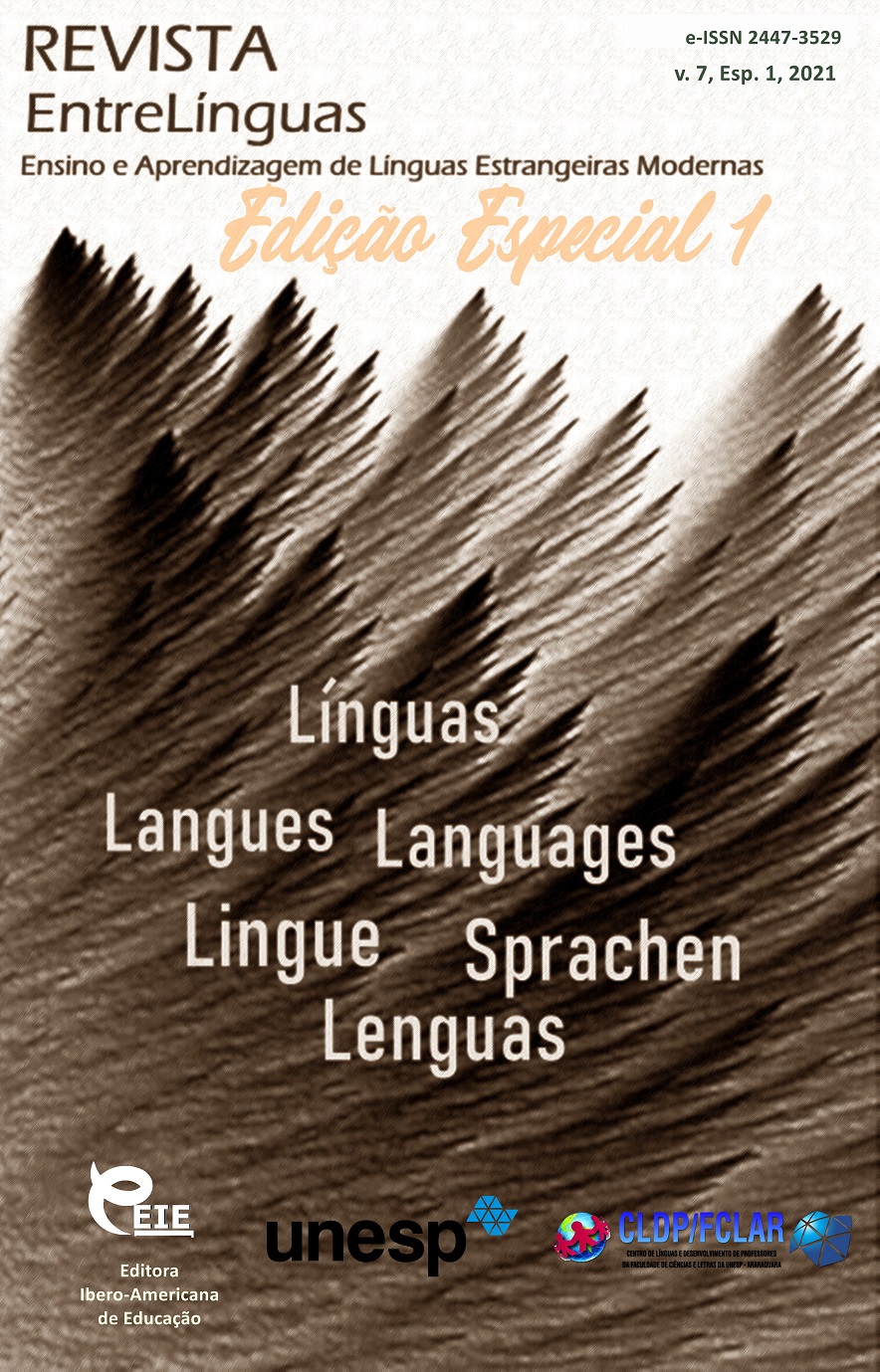Linguistic and didactic aspects of the “linguistic consciousness” formation in teaching foreign languages: grammar skills formation
DOI:
https://doi.org/10.29051/el.v7iEsp1.14877Keywords:
Teaching grammar, Grammar skills, Communication skills, Linguistic component, Active grammar, Passive grammarAbstract
The process of learning grammar is quite time-consuming. Poor grammar is often the reason that prevents people from communicating freely and competently in a foreign language. Definitely, some textbooks offer a sufficient number of grammar exercises, but, as a rule, these exercises are not aimed at communication. Therefore, it is quite natural that at the beginning of the formation of grammar skills, students do not have sufficient linguistic competence and psychological readiness for full-fledged foreign language communication. Consequently, the task of teachers is to create such conditions in the educational process where students are involved in communication step by step, with a gradual increase in psychological stress and linguistic load, at the same time including grammar tasks in the learning process. Thus, the relevance of this article is determined by the increased requirements for the quality of teaching a foreign language with a view to earlier communication and the undeveloped issues related to the problem of developing and improving grammatical skills.
Downloads
References
AZIMOV, E. G.; SCHUKIN, A. N. Dictionary of methodological terms (theory and practice of teaching languages). 1997. 472 p.
BIM, I. L. Methods of teaching foreign languages. 1991. 319 p.
IZMAILOVA, G.; GAFIYATOVA, E.; ROMAZANOVA, O. Substantivized Words Used as Addressing in English and Tatar Languages. Revista Publicando, v. 4, n. 13, p. 634-641, 2017.
KOLKOVA, M. K. Problems of formation of grammatical skills from the point of view of communicative-cognitive grammar. Novyye napravleniya v metodike prepodavaniya inostrannykh yazykov, p.123-128, 1992.
LEONTYEV, A. A. The pedagogy of common sense. Selected works on the philosophy of education and educational psychology. 2016. 528 p.
MINYAR-BELORUCHEV, R. K. Primitive grammar for learners of a foreign language. Inostrannyye yazyki v shkole, n. 4, p. 27-29, 2000.
MIROLYUBOVA, A. A. Questions of control of students learning a foreign language. 1999. 112 p.
PASSOV, K. I.; KUZOVLEVA, N.E.; PASSOV, Y. I. Fundamentals of communicative theory and technology of foreign language education. 2010. 568 p.
SHARIFULLINA, E. I.; SHI, D.; NURUTDINOVA, A. R. Strategies for the formation of communicative and speech competence: project activities and creative tasks. Overview of pedagogical research, v. 2, n. 4, p. 55-65, 2020.
STURUA, M. V. Methods of teaching practical grammar of the Russian language for students of multiethnic groups of preparatory faculties of technical universities. Dissertation Abstract of a candidate of doctorate in sciences. 2004. 218 p.
SWAIN, M. Bilingual schooling. 1972. 102 p.
VITLIN, Z. A. Sovremennyye problemy obucheniya grammatike inoyazychnykh yazykov. Inostrannyye yazyki v shkole, n. 5, p. 22-25, 2000.
Downloads
Published
How to Cite
Issue
Section
License

This work is licensed under a Creative Commons Attribution-NonCommercial-ShareAlike 4.0 International License.
Os manuscritos aceitos e publicados são de propriedade da Revista EntreLínguas. Os artigos publicados e as referências citadas na Revista EntreLínguas são de inteira responsabilidade de seus autores.
Transferência de direitos autorais – autorização para publicação
Caso o artigo submetido seja aprovado para publicação, já fica acordado que o(s) autor(es) autoriza(m) a UNESP a reproduzi-lo e publicá-lo na EntreLínguas, entendendo-se os termos “reprodução” e “publicação” conforme definição respectivamente dos incisos VI e I do artigo 5° da Lei 9610/98. O artigo poderá ser acessado pela rede mundial de computadores (Internet), sendo permitidas, a título gratuito, a consulta e a reprodução de exemplar do artigo para uso próprio de quem a consulta, desde que haja a citação ao texto consultado. Essa autorização de publicação 328 EntreLínguas, Araraquara, v. 1, n .2, p. 323-328, jul./dez. 2015 não tem limitação de tempo, ficando a UNESP responsável pela manutenção da identificação do(s) autor(es) do artigo. Os artigos publicados e as referências citadas na Revista EntreLínguas são de inteira responsabilidade de seus autores.











